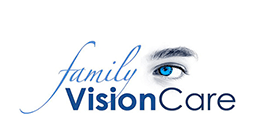 With myopia on the rise, it’s important for parents to know how myopia (nearsightedness) can impact their child’s future and what actions they can take to protect their child's eye health in the long run.
With myopia on the rise, it’s important for parents to know how myopia (nearsightedness) can impact their child’s future and what actions they can take to protect their child's eye health in the long run.
Childhood myopia, or nearsightedness, increases the risk of eventually developing serious eye diseases like macular degeneration, cataracts, glaucoma, retinal detachment and diabetic retinopathy.
Myopia occurs when the eye elongates more than it should, causing light to focus in front of the retina instead of on it. Nearsightedness is caused by a combination of factors, including genetic and environmental.
As it turns out, a key player in the development of myopia is how much time a child spends outdoors in the sunlight.
How Does Outdoor Play Affect Myopia?
Although researchers haven’t yet pinpointed exactly why “sun time” prevents or delays myopia, almost all agree that it does.
One possible reason is the brightness of the sun. Some experts have found that the intensity of the sun’s rays trigger a dopamine release in the retina, which is thought to slow down the elongation of the eye.
Another theory is that outdoor time encourages a child to shift their gaze from near objects to faraway ones. Excessive near work, like looking at a digital screen, is believed to be a driving force behind the stark increase in myopic individuals today.
Sending a child outdoors to play gives their eyes a break from focusing on their tablets, smartphones, homework, gaming and other near work.
Additionally, spending more time in the sunshine means more Vitamin-D production. Small-scale studies have found nearsighted people have lower levels of Vitamin D than those with normal eyesight. However, more research is needed on the matter.
What’s the Bottom Line?
Having myopia as a child increases their risk of developing sight-threatening eye diseases later in life. Parents should be proactive about their child’s eye health and do what they can to prevent myopia or slow it down.
Even if your child doesn’t have myopia, letting them play outdoors a couple of hours a day has been found to prevent the onset of myopia in some cases. When one or both parents are nearsighted, their child is more likely to develop it.
So, give your child a water bottle, sunscreen, a pair of sunglasses and send them outside to play! Children aged 6 years and older should spend about 2 hours daily outside in the sunshine.
But sun time alone isn’t enough to ensure the best possible outcome for their eye health. A myopia management program can help give your child the best odds of healthy vision for a lifetime.
To learn more about the treatments we offer and schedule your child’s myopia consultation, call Family Vision Care today!
Q: #1: What is myopia management?
- A: Myopia management is the science-based method of slowing or halting the progression of myopia. There are several options available, and your optometrist will sit down with you and your child to discuss which treatment option is most suitable.
Q: #2: Who can benefit from myopia management?
- A: Myopia management treatments have been approved for children as young as 8 and can be used until early adulthood. Myopia management is great for children with low myopia but can also be effective for slowing myopia progression in kids and teens with moderate to high myopia. Contact us to find out whether your child is a candidate for myopia management. We look forward to speaking with you!
Family Vision Care serves patients from Mt Pleasant, Charleston, Drum Island and Sullivan's Island, all throughout South Carolina.
